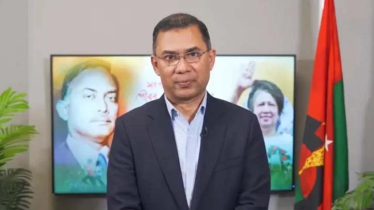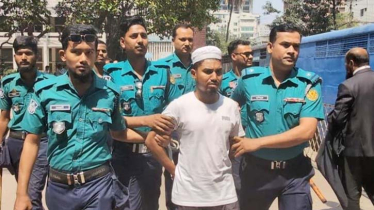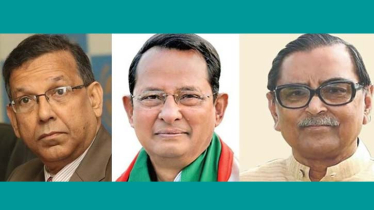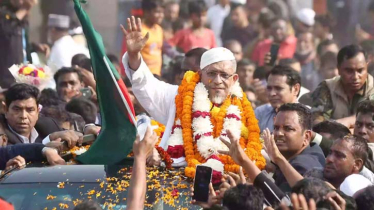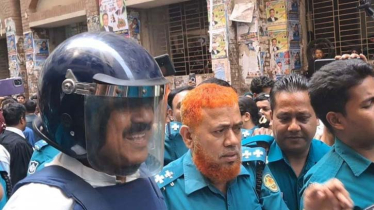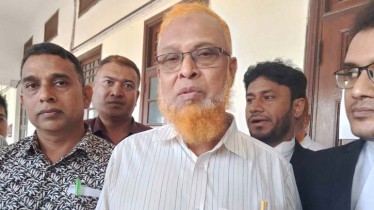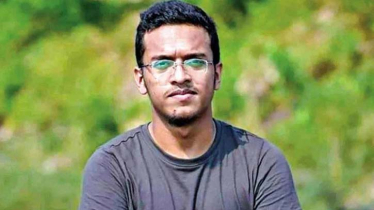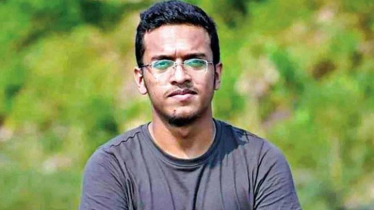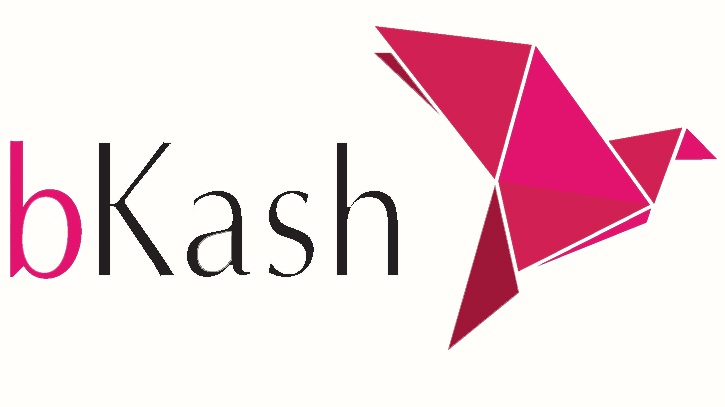
Photo: Collected
A web link claiming bKash is paying Tk 25,000 in Eidi to everyone for the upcoming Eid-ul-Adha has circulated on social media. It has confused a lot of people as it contains the bKash logo. It also contains an application form, and people have reported having their money deducted from their bKash accounts after filling it out.
Fake bKash offer ads on Facebook containing Prime Minister Sheikh Hasina's picture and three media outlets’ logos – News24, Channel i, and RTV – have also been detected. The accomplices of those running the campaigns have written in the comment section that they have received money.
More than 3,000 such ads have been found in the Meta ad library. Those have been run from 16 Facebook pages. Clicking on the links will take the Facebook user to another website. Cambodia and Indonesia are the locations of most of the admins of these pages.
A total of 1,871 ads were found in the Meta ad library when a search was made with this prompt – "I am giving a gift of Tk 25,000 to everyone in the country, click here to get.” The ads were run from eight Facebook pages. Two of the pages were found to be closed, while the remaining six were active.
Besides, 1,509 advertisements were found with the prompt – "Click here to get a Tk 5,000 bonus.” These were run from eight Facebook pages. The ads were running on Facebook at the time of writing this report.
Clicking on the fake links leads to a different link, where the user is asked to fill out a form to receive the gift. After the form is filled, the user is taken to the bKash payment gateway. When the user enters his bKash account number and the PIN code in the next step, money is deducted from the account.
A person named Ahmed Hossain said, “I clicked on the link after seeing it on Facebook. But I became suspicious after seeing the application form. I did not proceed further.” Another person named Mohammad Salim said, "I became suspicious after seeing it on Facebook first. After talking to people, I found out that it was fake.”
The bKash authorities said they have recently observed that some fraudsters are trying to steal money and information from the company’s customers by creating fake websites and running fake ads on social media. “Do not get lured by these fake offers and do not make transactions on such websites.”
Shamsuddin Haider Dalim, head of corporate communications at bKash, said, “The bKash social media campaigns that are not run by the company are fake. As for the campaigns you mentioned, we have informed the law enforcement agencies of these. Our cyber team is also looking into the matter.”
Deputy Police Commissioner of the Counter Terrorism and Transnational Crime (CTTC) unit of Dhaka Metropolitan Police (DMP) Nazmul Islam said, “Cyber fraudsters are stealing money from people’s mobile financial service accounts, including bKash, Nagad, and Rocket. Our cyber team is monitoring and has also arrested several fraudsters.”
“We are noticing scams in the name of giving cash as gifts using bKash and Nagad logos. We are monitoring this. Soon it will be possible to arrest the fraudsters,” he said. In response to a question, Nazmul further said, “We are also aware of the fact that cyber fraudsters are committing various types of frauds in the name of giving stipends.”
Cyber expert Naushad Iqbal told The Daily Messenger, “By analysing 16 Facebook pages running the fake ads, it was found that 11 contain information about the countries where the admins are located. Each of the 11 pages showed one or more admins living in Cambodia and Indonesia. With these two countries, the number of pages that have admins from Bangladesh is three. There are two pages that have admins from India.”
He said, “Spreading fake offers on social media in the name of bKash is not new. In February this year, an advertisement mentioning bKash offers on Valentine's Day appeared on Facebook. However, fake advertisements that include the prime minister’s photo were not seen before. It is also the first time that logos of mainstream media outlets have appeared in the advertisements.”
Explaining further, the expert said, “Meta said in its policy that ads must be marked as political if they contain political figures. The bKash fake ads used the picture of the prime minister of a country, who is a political figure. However, Meta did not mark any of the more than 3,000 ads as political. This means it did not properly enforce its advertising policy here. Earlier, research firm Digitally Right published a study on the effectiveness of Facebook's advertising policy. It found some significant flaws of the company in taking action in case of political advertising.”
In response to a question, Naushad said, “The exact amount of money spent on running these ads cannot be confirmed, but dismislab has made an estimation. A total of 3,380 ads were run from 16 pages. Meta recommends that most advertisers who spend money based on impression ratios allocate at least $1 per day. Therefore, if the advertising cost is calculated at a minimum of $1 per day, those running the fake ads might have spent $3,380 on the Meta platform in a single day. In Bangladeshi currency, the amount is about Tk 4 lakh.
Criminal Investigation Department’s Additional Superintendent of Police Azad Rahman told The Daily Messenger they are receiving many complaints about mobile financial service frauds. “People are being defrauded despite various awareness campaigns by the companies. Fraudsters are also devising new tricks. We are aware of the tricks that fraudsters are using ahead of Eid. Our cyber experts are working on it. Hopefully, these fraudsters will be brought to book.”
Messenger/Fameema

